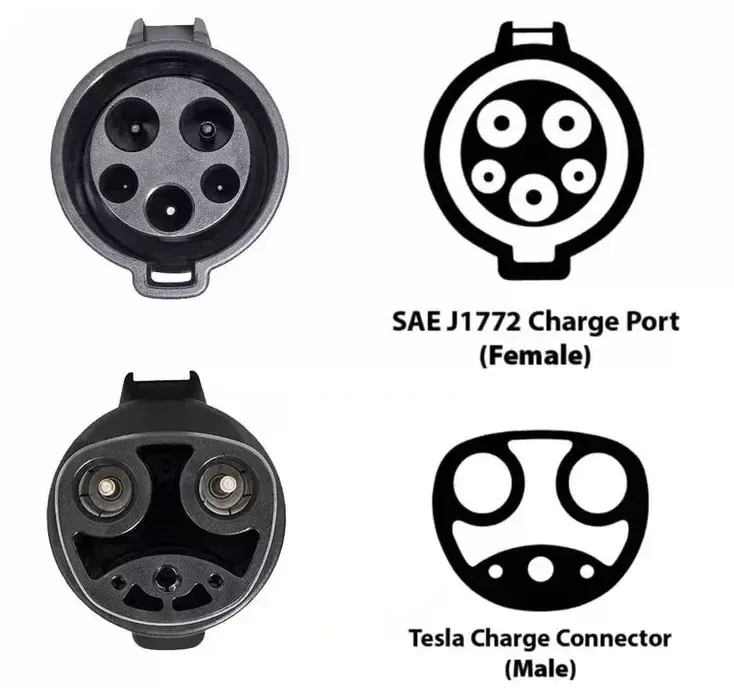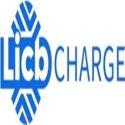Notifications

7 minutes, 5 seconds
-41 Views 0 Comments 0 Likes 0 Reviews

The J1772 Plug: Powering North America’s EV Revolution
As a leading EV charger manufacturer in China, LiCB Charge delivers reliable AC and DC electric vehicle charging stations along with comprehensive charging solutions.
As electric vehicles (EVs) become more common across North America, one piece of technology stands out as a quiet but critical enabler—the J1772 plug. Also known as the SAE J1772 connector or simply the J-Plug, this standardized AC charging interface has become the default for virtually all non-Tesla EVs in the U.S. and Canada.
Developed by the Society of Automotive Engineers (SAE), the J1772 connector ensures reliable, universal, and safe power transfer from charging stations to electric vehicles. Whether you’re charging at home or at a public station, the J1772 plug makes the process simple and consistent.
The J1772 connector is the standard AC charging interface for nearly every EV brand—Chevrolet, Ford, Honda, Hyundai, Kia, Nissan, Toyota, and more. While Tesla uses its own proprietary connector, Tesla owners can still use J1772 stations with an adapter, ensuring broad compatibility across public charging networks.
Far more than just a cable, the J1772 plug is a cornerstone of EV infrastructure in North America.
The J1772 connector is engineered for performance and safety. Its five-pin configuration includes:
2 Power Pins – For 120V or 240V AC current
1 Ground Pin – Ensures safe operation
2 Communication Pins – Manage handshake protocols between the EV and charger
These communication pins enable the charger and vehicle to coordinate charging safely, verifying the connection and confirming charging readiness. The plug also features a secure locking mechanism, robust weatherproofing, and an ergonomic grip—designed for repeated, reliable use in any environment.
The J1772 connector supports Level 1 and Level 2 AC charging, making it ideal for daily residential or workplace charging needs.
Speed: ~4–5 miles of range per hour
Use Case: Plug into a standard home outlet for overnight charging
Setup: Uses a NEMA 5-15 outlet
Speed: ~25–30 miles of range per hour
Use Case: Common at homes, businesses, and public stations
Setup: Requires a dedicated 240V circuit with EVSE or a NEMA 14-50 outlet
While not as fast as DC fast charging, Level 2 with J1772 is ideal for daily charging needs and is widely accessible.
The main limitation of the J1772 plug is its AC-only capability. For rapid charging, drivers need to use DC fast charging options like CCS or CHAdeMO, which bypass the vehicle's onboard charger to deliver high-voltage DC power directly to the battery.
Still, for the majority of EV owners—especially those charging overnight—J1772 delivers all the speed and convenience they need.
The J1772 connector supports EV adoption by offering:
Universal Compatibility – One plug works with almost every EV on the road (with adapters for Tesla).
Wide Availability – Found at thousands of public stations in malls, offices, garages, and gas stations.
Cross-Platform Flexibility – Tesla’s adapter allows even proprietary vehicles to access the J1772 network.
Safe, Smart Charging – Intelligent features prevent overcharging, overheating, and ensure secure connections.
Installing a Level 2 J1772 charger at home is one of the best ways to maximize EV ownership convenience.
240V outlet
30–50 amp dedicated circuit
Breaker sizing based on the charger’s rated output
Hire a licensed electrician
Check main panel capacity
Secure local permits and inspections as needed
Many J1772 chargers offer:
App-based scheduling and monitoring
Wi-Fi/Bluetooth connectivity
Energy tracking and cost management
Outdoor chargers should have a NEMA rating, be water/dust resistant, and withstand extreme temperatures.
| Component | Estimated Cost |
|---|---|
| Level 2 J1772 Charger | $400–$900 |
| Electrical Installation | $300–$1,000 |
| Permits & Inspections | $50–$200 |
| Total Estimated Cost | $750–$2,100 |
Many regions offer rebates or incentives that can reduce this cost significantly—often up to $500 or more.
While J1772 remains the go-to standard for AC charging, the landscape is evolving. Several automakers—including Ford, GM, Rivian, and Volvo—plan to transition to NACS (North American Charging Standard), Tesla’s proprietary connector, starting in 2025.
Still, J1772 won’t disappear anytime soon. With millions of EVs currently using this connector and a vast existing charging network, support for J1772 is expected to continue well into the future.
The J1772 plug has been essential in shaping North America’s EV charging ecosystem. Its universal compatibility, proven safety, and widespread availability make it a reliable and future-ready solution for daily EV charging.
Whether you’re charging at home, work, or on the road, the J1772 connector delivers the convenience and confidence that EV drivers need—making it a vital link in the journey toward an electric, zero-emission future.Know more about Google SEO Directory
China EV Chargers EV Charger Manufacturer Smart EV Chargers Electric Car Chargers Electric Vehicle Chargers Electric Car Charging Stations

